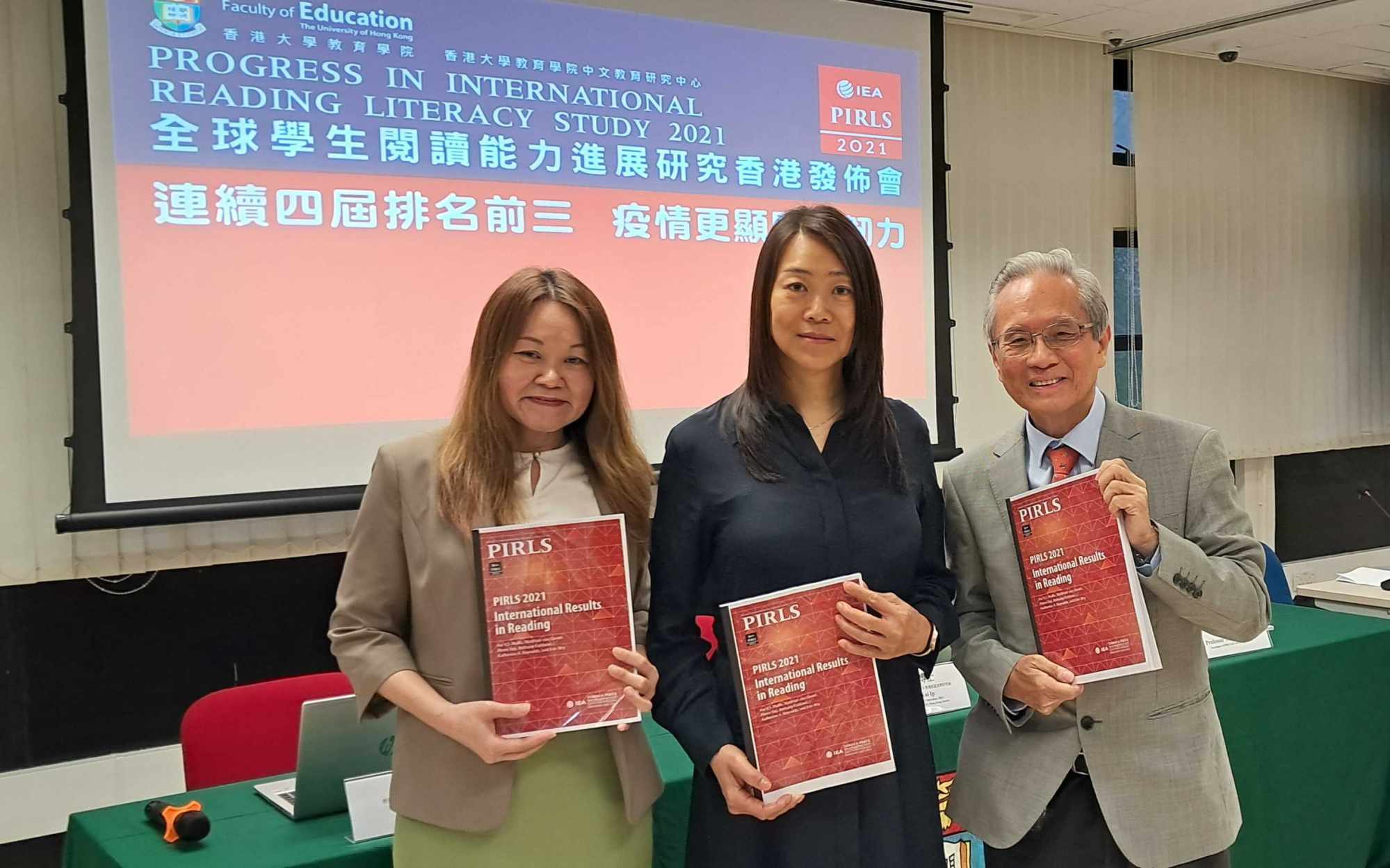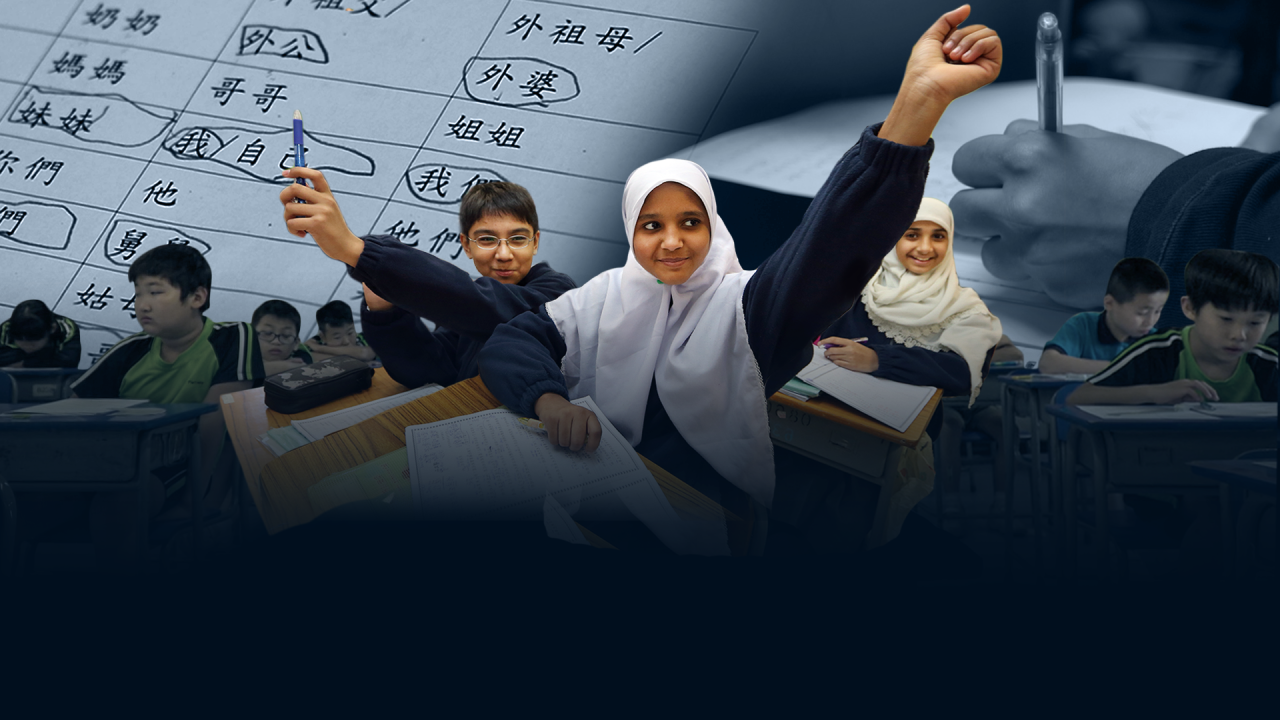
Hong Kong Primary Four pupils take third spot in reading survey of 57 countries and territories around the world
- Hong Kong beaten only by Singapore, which took top spot, and Ireland in major survey released on Wednesday
- But survey finds, despite high standard, city youngsters lack confidence in their reading ability
Hong Kong schoolchildren have ranked third in an international reading assessment involving 57 countries and regions around the world.
The city was beaten only by Singapore, which took the top spot, and Ireland in the 2021 results for the Progress in the International Reading Literacy Study (PIRLS), which was released on Wednesday.
More than 60 per cent of the places involved in the study of Primary Four pupils reported a decline in reading proficiency, but the research team said they were pleased to see Hong Kong schoolchildren were able to maintain high standards, despite problems caused by Covid-19.
“Hong Kong actually has the strength and resilience to go through it because parents are there to support the children when they are at home.”

Another assessment under the same study, but with 43 countries and regions, placed Hong Kong’s youngsters second in reading achievement, just behind Singapore.
Hong Kong has remained in a podium position for four surveys in a row, despite the disruption caused by the Covid-19 pandemic.
The large-scale assessment, organised by the International Association for the Evaluation of Educational Achievement, has been carried out every five years since 2001.
The assessment in Hong Kong was conducted in traditional Chinese between April and July 2021, after schools resumed face-to-face classes.
Hong Kong set to back plan to cut 1,000 discretionary places in primary schools
More than 3,800 Primary Four pupils from 144 schools took part in the assessment.
There were 3,765 parents and 155 Chinese language teachers who also participated in the survey.
Hong Kong pupils scored 573 points overall, outperforming the international benchmark of 500.
Girls, with a score of 577 points, outperformed boys, who were behind by eight with 569 points.
“The gender gap in reading proficiency has narrowed slightly this year which is a good sign,” Dr Lam Wai-ip, the lead researcher and associate professor in HKU’s education faculty.
“How to help the boys catch up with reading literacy would be our future goal … We do not think gender should affect students’ reading ability. For boys, it may be because they tend to use more electronic devices and lack interest in reading books.”
But the appraisal revealed that, despite their proficiency, Hong Kong pupils displayed relatively low confidence and self-belief in their reading ability.
Hong Kong students ranked 49th in self-efficacy in reading out of the 57 countries and territories involved.
The study also found that city children showed higher ability in informational reading compared with literature and poetry, similar to previous years.
The academics said that raised a red flag over whether pupils enjoyed and engaged in reading for the love of it.
“Extensive training and school exercises could make students feel bored by reading. Not just in Hong Kong, we have observed that love for reading is also crucial for students in other parts of the world as it affects children’s engagement in literary reading,” Cheong explained.
She suggested parents buy fiction books for their children so they could develop a taste for reading for its own sake.
Face masks’ lasting impact on children: Hong Kong mum and experts weigh in
“We want our children to first love reading and then continue to build confidence … rather than having too much drilling, as it will kill their interest in reading,” Cheong said.
Professor Tse Shek-kam, an investigator for the PIRLS 2021 Hong Kong section, said parents should promote a positive attitude to reading and the use of books for pleasure.
He said more exercises may help children get higher marks in dictation or examinations in the short term, but would destroy children’s motivation to read, he said.
He added that the socioeconomic status of the families did not directly affect students’ reading achievement, but the number of books at home and parental expectations played a major part.
“If parents can promote pleasurable reading, it will develop children’s interest in reading, and in the end learning, and also they will be better developed.”
A bureau spokesman said it would analyse the findings and continue to collaborate with the education sector, other government departments, parents and the public to boost reading ability.


